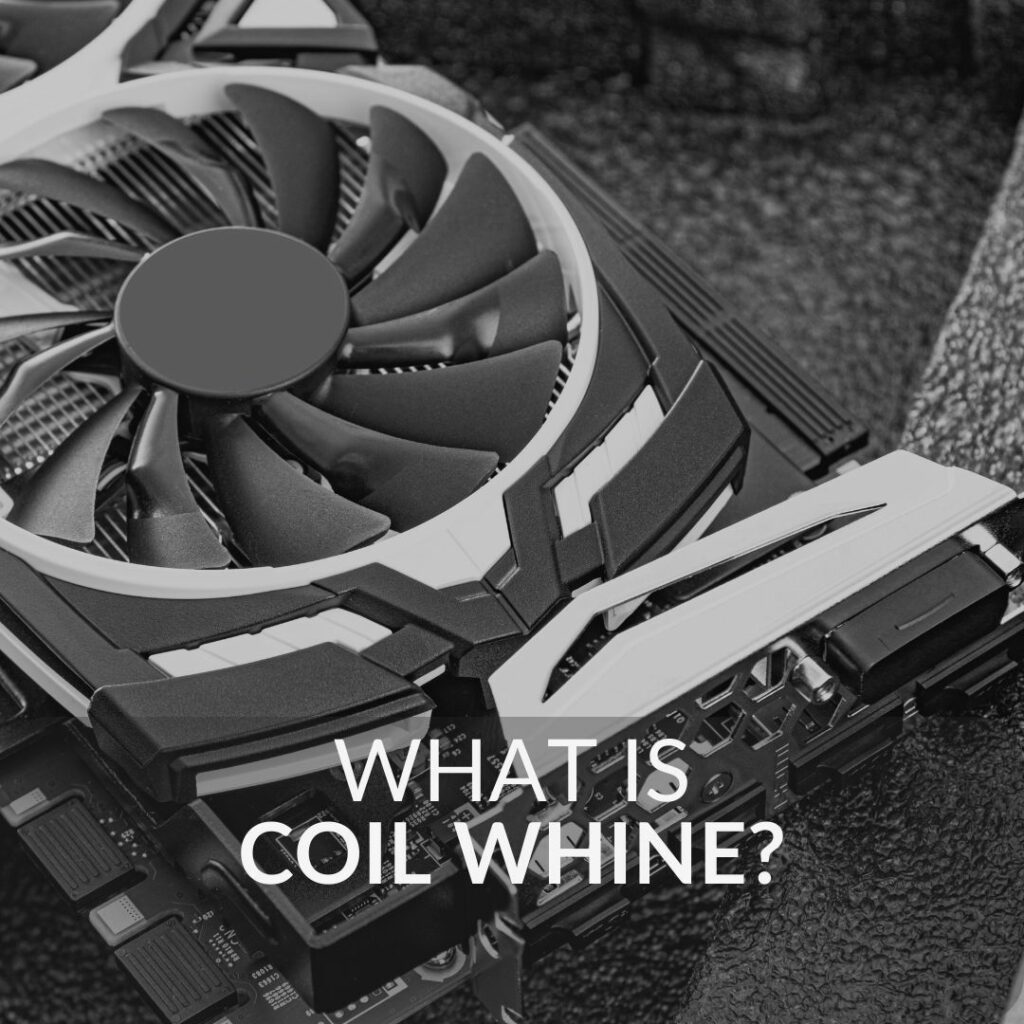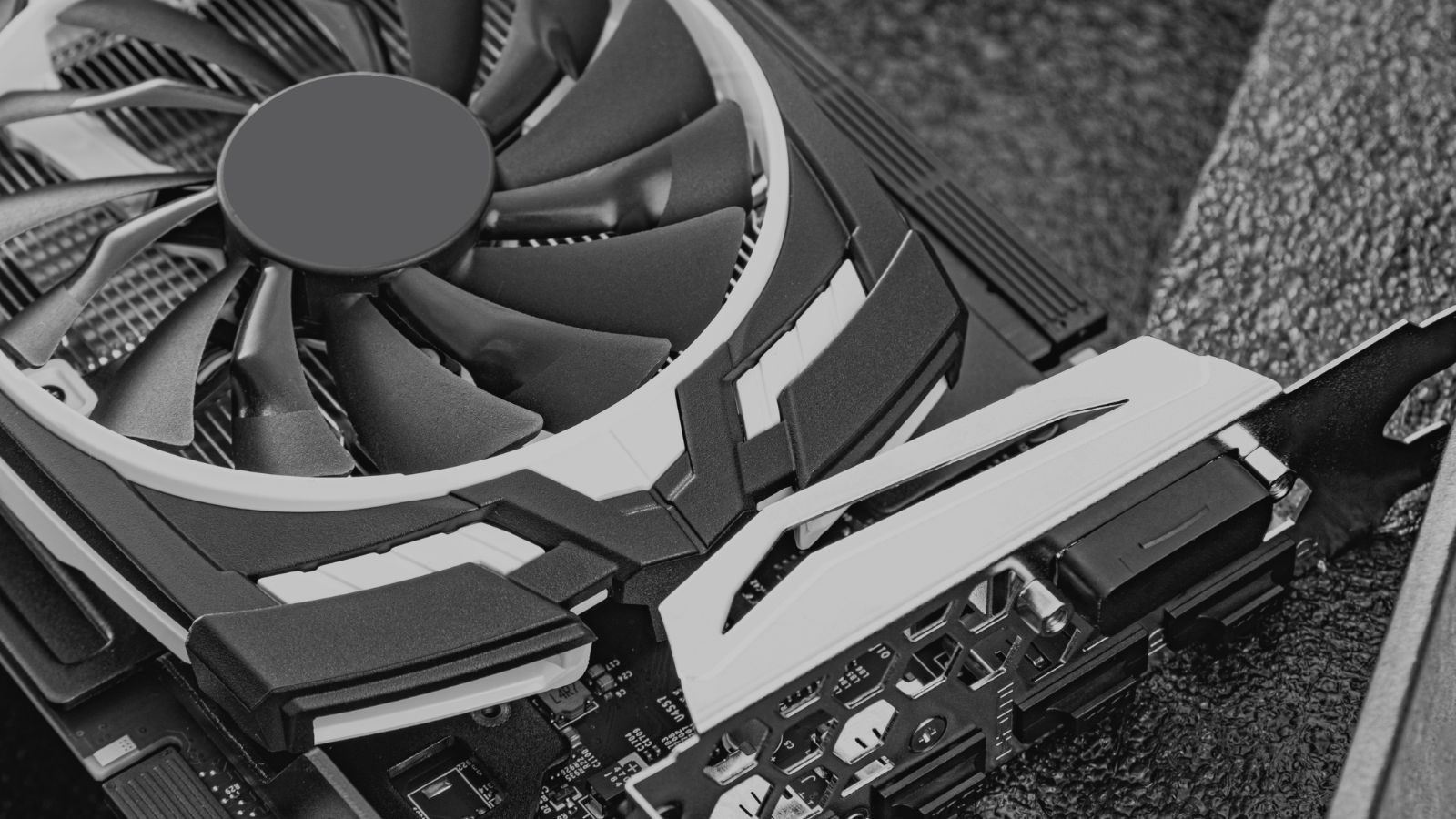We’ve all heard of the term, coil whine, but what exactly is it?
As the PC experts, here at Overclockers UK, we’ve compiled everything you need know about coil whine. We’ll be highlighting what exactly it is, which components often experience it, the common causes, and our top tips and tricks to prevent coil whine.

Coil Whine:
Coil whine is typically a high-pitched noise that is created by the vibration of the coils inside an electronic component. This includes graphics cards, power supplies, and motherboards.
The coil is responsible for regulating a consistent flow of electricity throughout the component. When electricity is flowing through the coil, it will create a powerful magnetic field that can cause the coil to vibrate at high frequencies. This vibration can often result in an audible noise.
What Causes Coil Whine?
There are multiple different factors that can create or increase your chance of coil whine.
Power Supply Current Fluctuations:
Any voltage or current fluctuations in your power supply can be responsible for creating coil whine. If the current or voltage flowing through any of your components suddenly changes, the coils within that component can rapidly start to vibrate and ultimately produce more noise.
Electrical Currents:
Both the level and type of electrical current passing through your components is also a factor. Any component that draws more power, has high power demands, or uses a certain type of electrical current, such as alternating, all have an increased chance of coil whine.
High FPS (Frames Per Second):
Whilst playing games at a high FPS grants you a distinct advantage over your enemies and boosts your immersion, it does put more strain on your graphics card. With your GPU working harder to render your graphics at those ultra-fast speeds, the coils will vibrate more.
Poor Quality Components:
The design of your components can make them more susceptible to coil whine. Any components with large, complex, or poorly insulated coils are more prone to excess vibrations.
Overclocking:
Overclocking your components grants you full access to blisteringly fast speeds and maximum performance. However, it does come with some risks. One of which is coil whine.
When you overclock any of your components, such as the graphics card, it could result in coil whine.
General Wear and Tear:
All electronic components age with use. Overtime the coils within the component can become loose, resulting in an increased chance of coil whine.
Environmental Factors:
Believe it or not, our PC components can be affected by the weather, just like us! Any high temperatures or an increase in humidity can also play a role in coil whine.
Does Coil Whine Affect My PC Performance or Hardware?
Whilst the audible vibration can be annoying to listen to, it has no effect on the overall performance of your gaming PC or your components.

However, it can be a sign that your PC is suffering from other serious issues, such as power fluctuations, which can have a negative effect on your components in the long term. That’s why it’s definitely not something that should go ignored. We recommend you opt to do some simple testing or common easy fixes to narrow down whether it’s something you need to be concerned about.
Our Top Tips to Prevent Coil Whine
There are a few tips and tricks you can to do prevent or limit how much coil whine your PC is experiencing. This includes:
- Change your graphical settings – limiting your frame rate or enabling features as V-Sync can help to reduce the load on the GPU.
- Check if your PSU meets the power demands of your hardware – if it doesn’t, then it’s time for an upgrade.
- Utilise noise dampening – high-quality noise dampening panels can help to block out the audible vibrations.
- Undervolt your GPU – reducing the clock speed or voltage of the graphics card can help to limit the load on the GPU.
- Adjust your overclocked settings – if you have overclocked any of your components, you can also try to lower the clock speeds.
- Check what tools your manufacturer has – often manufacturers of PC hardware will have some tools or software that you can use to help prevent or limit the effects of coil whine. For example, MSI Afterburner allows you to lower the voltages of your GPU.
- Replace your hardware – if you have tried everything to reduce the coil whine, you may want to look at replacing the hardware completely.
Is It Time to Upgrade?
Have you tried everything you can to limit the impact of coil whine on your PC? Or perhaps you’ve narrowed the cause down to a specific component? Whatever the case, we’ve got everything you need to give your gaming PC that much-needed upgrade.

Plus, why not take advantage of our 2023 summer sale and your hands on all your hardware at a discounted price?

What if a new GPU from overclockers has very disturbing coil whine? Can I return it?
We suggest talking to our customer services team. They can help with queries of this nature.